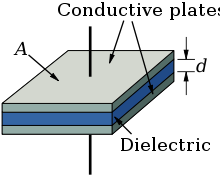PS power steering pump repair DIY ?
#26
Just because something is touched by a fluid doesn't mean that it will become dirty and just because something becomes dirty doesn't mean it can't work.
To make this fact, you would need to share some information on how the P/S fluid, itself prevents the flow of electricity.
To make this fact, you would need to share some information on how the P/S fluid, itself prevents the flow of electricity.
#27
Seems like since the Alternator spins at 4x crank speed, (Or more) that if it got oil in it, then dust you'd end up with an insulating layer that would prevent proper cooling of the guts when in use.. And it might actually conduct, also the diode packs typically are not sealed so grunge could get in there and short things as well.. Its a electro mechanical gadget,, they wear out and fail..
#28
The copper wire has a clear insulation/varnish on it and the electronics are sealed against all of this:
(You can't see the clear insulation on the wires, but it's easy to know its there. If it wasn't, the stator wires would short out!)
Per the comment above, hydraulic fluids and oils would generally insulate. Most of the business going on inside the alternator relies on magnetic fields, which won't care about any of this.
#29
P/S fluid is a hydraulic oil. It's not very conductive of electricity. It's an insulator. Which is why you will find oil used in electrical transformers (insulation and heat sink), coils, solenoids, etc. With that theory, any amount of P/S fluid in your alternator will impede current flow.

https://en.wikipedia.org/wiki/Capacitance
That's even before it cooks on to conductive surfaces as varnish. I guess one could suggest than extremely contaminated oil could become more conductive as it heavily oxidizes. Though P/S fluid doesn't thicken up as easy as motor oils. Not many free floating conductive ions in P/S fluid. You most often see ATF's which have a few hundred PPMs total of Phosphorus, Sulfur, Zinc, and Boron combined.
Last edited by wssix99; 11-11-2017 at 09:31 AM.






